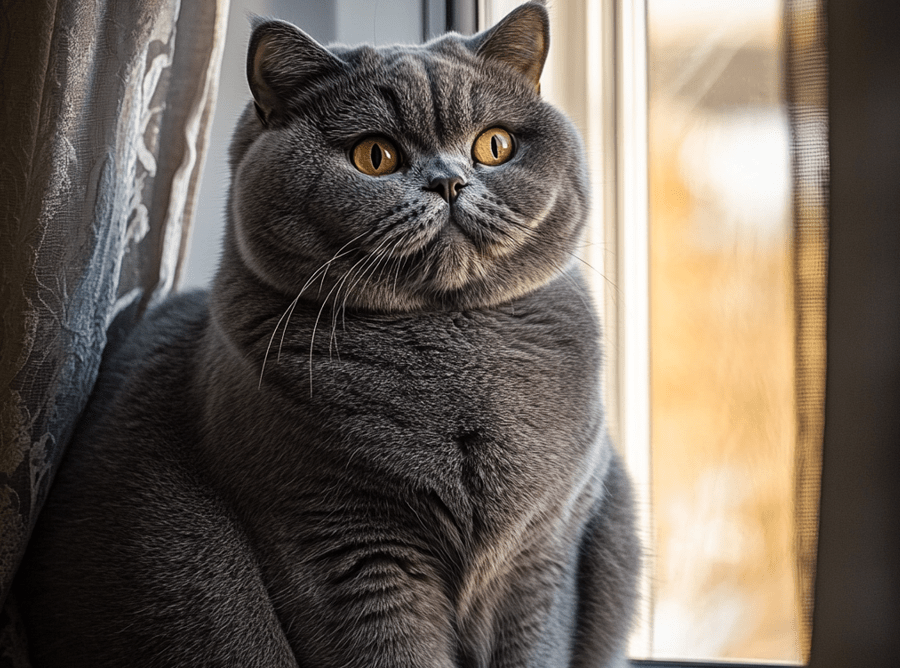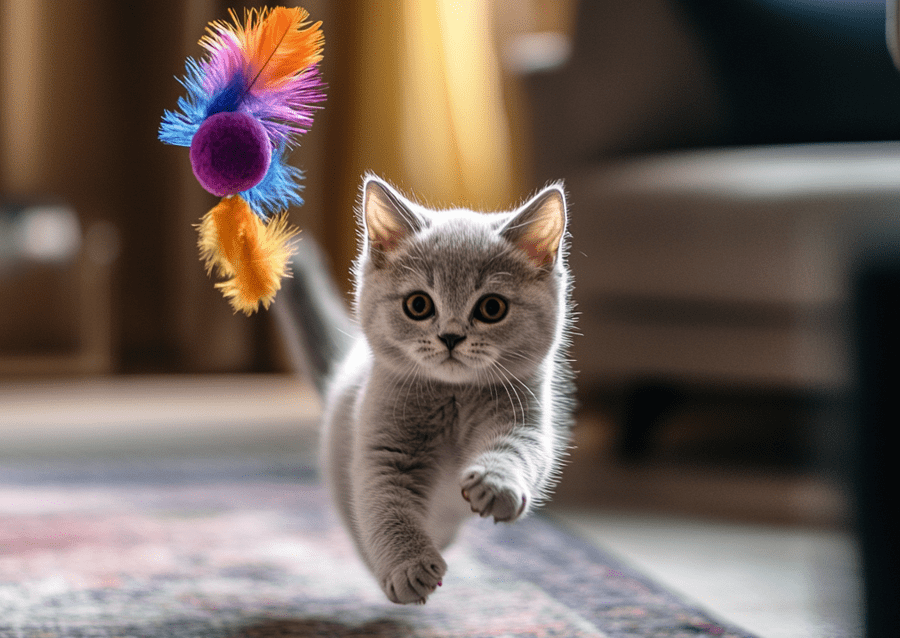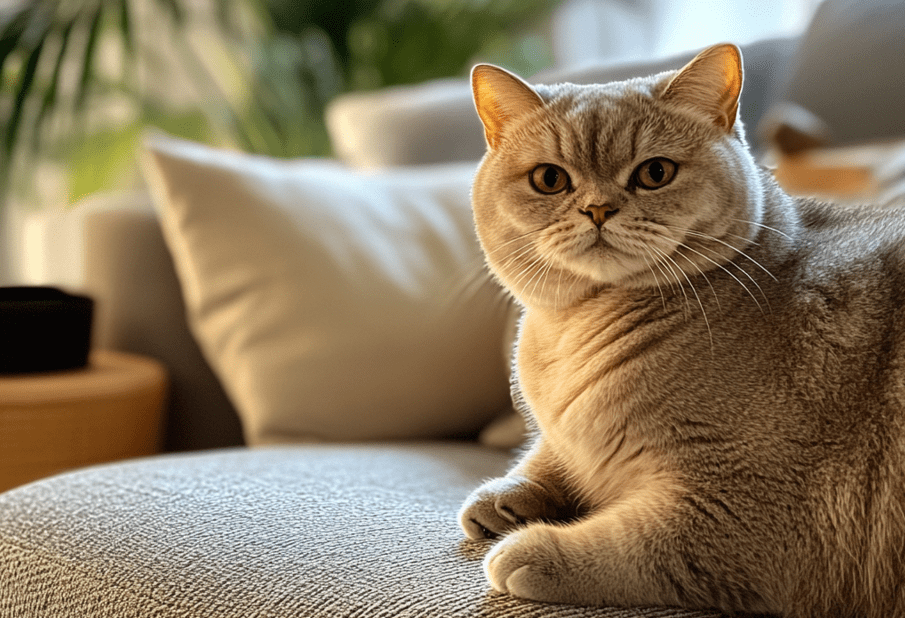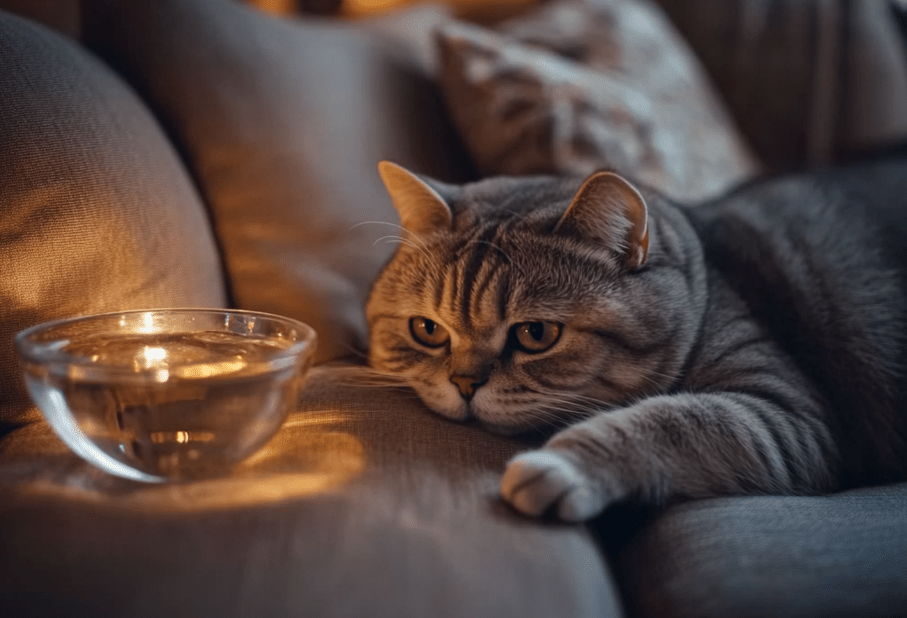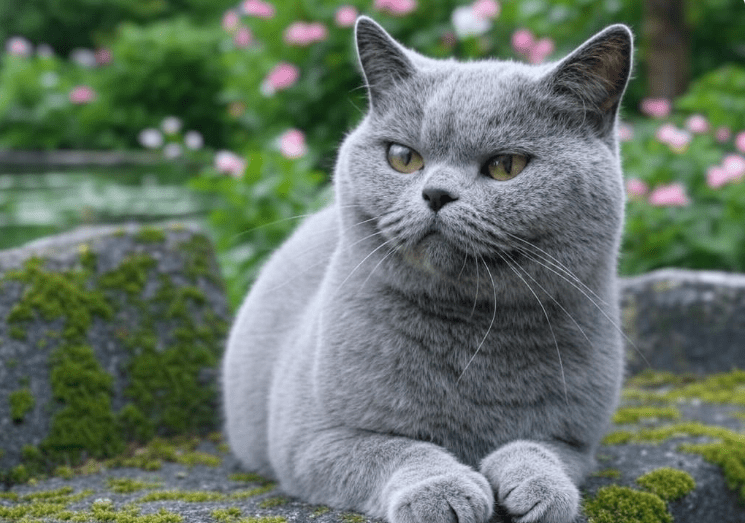
British Shorthairs, with their plush coats and charming personalities, are prone to obesity due to their love for lounging and hearty appetites. To prevent overfeeding your British Shorthair, owners must understand their cat’s unique dietary needs, practice portion control, and establish healthy feeding habits. This comprehensive guide offers actionable advice to keep your British Shorthair fit, healthy, and thriving. By addressing common feeding mistakes and promoting mindful practices, you can ensure your feline companion enjoys a long, vibrant life free from obesity-related health issues.
Why Overfeeding is a Concern for British Shorthairs
British Shorthairs have a sturdy, muscular build, but their low activity levels and tendency to overeat make them susceptible to weight gain. Obesity in cats can lead to serious conditions like diabetes, arthritis, heart disease, and urinary tract issues. Overfeeding often results from misunderstanding portion sizes, offering excessive treats, or failing to adjust food intake as the cat ages. By focusing on preventing overfeeding, you can protect your British Shorthair’s health and enhance their quality of life.
Health Risks of Obesity
Diabetes Mellitus: Excess weight impairs insulin regulation, increasing diabetes risk.
Joint Issues: Extra pounds strain joints, leading to arthritis or reduced mobility.
Cardiovascular Problems: Obesity stresses the heart and lungs, lowering stamina.
Urinary Complications: Overweight cats are more prone to infections and blockages.
Preventing these risks starts with tailored feeding strategies that meet your British Shorthair’s needs.
Understanding Your British Shorthair’s Nutritional Needs
To prevent overfeeding your British Shorthair, it’s crucial to grasp their nutritional requirements. These cats need a balanced diet high in quality protein, moderate in fats, and low in carbohydrates. Their caloric needs depend on factors like age, weight, activity level, and health status.
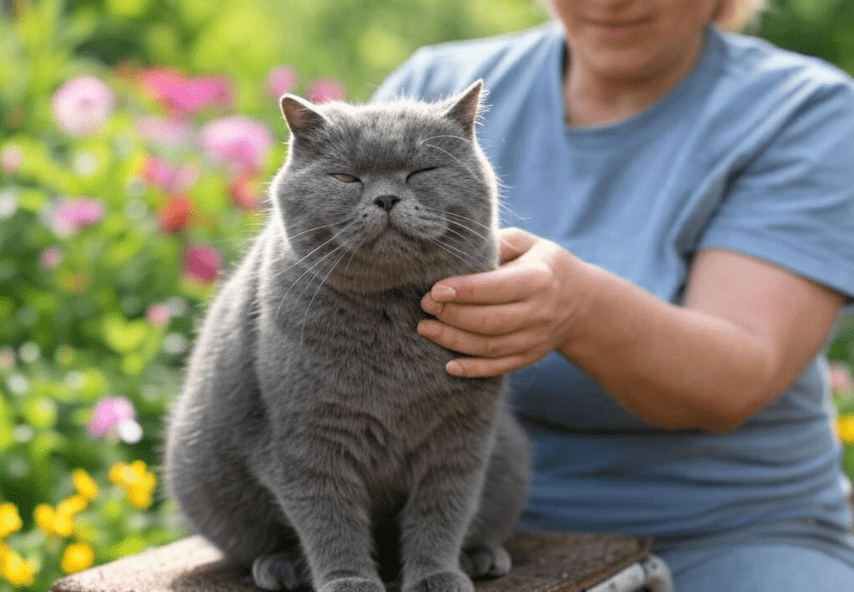
Key Nutritional Components
Protein: Supports muscle maintenance and overall health. Choose foods with named meat sources (e.g., chicken, turkey, fish) as the primary ingredient.
Fats: Provide energy but should be limited to avoid weight gain.
Carbohydrates: Cats have minimal need for carbs, so avoid foods with fillers like corn or wheat.
Moisture: Wet food aids hydration and weight management, as it’s less calorie-dense than dry kibble.
Caloric Needs by Life Stage
Kittens (0–12 months): Need 100–150 kcal per kg of body weight daily for growth.
Adults (1–7 years): Require 20–30 kcal per pound of ideal body weight daily.
Seniors (7+ years): May need 15–20 kcal per pound due to lower activity levels.
Consult your veterinarian to calculate your cat’s ideal weight and daily caloric intake.
Common Causes of Overfeeding
Overfeeding often happens unintentionally. Identifying the root causes can help you adopt better feeding practices.
Free-Feeding: Leaving food out all day encourages grazing, often driven by boredom rather than hunger.
Inaccurate Portions: Misjudging portion sizes based on vague pet food labels can lead to overfeeding.
Too Many Treats: High-calorie treats can quickly exceed daily caloric needs.
Human Food: Table scraps or human foods disrupt nutritional balance and add unnecessary calories.
Emotional Feeding: Offering food as affection can create unhealthy habits.
Addressing these issues is key to maintaining your British Shorthair’s healthy weight.
Practical Tips to Prevent Overfeeding Your British Shorthair
Here are evidence-based strategies to ensure your British Shorthair maintains an ideal weight through proper feeding practices.
1. Measure Portions Precisely
Use a kitchen scale or measuring cup to portion food based on your cat’s caloric needs. Avoid estimating portions, as small errors can accumulate over time.
Tip: Split daily food into 2–3 small meals to mimic natural feeding patterns and reduce begging.
2. Select High-Quality Cat Food
Choose premium cat food formulated for your British Shorthair’s life stage, meeting AAFCO standards. Avoid foods with artificial additives or excessive fillers.
Wet vs. Dry Food: Wet food is ideal for weight control due to its high moisture content and lower calorie density. A combination of wet and dry can work if portions are controlled.
3. Limit Treats
Treats should account for no more than 10% of daily calories. Opt for low-calorie, high-protein options, and avoid sugary or starchy treats.
Alternative Rewards: Use playtime, grooming, or affection to bond with your cat instead of food.
4. Avoid Free-Feeding
Establish a feeding schedule to regulate intake and monitor appetite, which can signal health changes.
5. Monitor Weight Regularly
Weigh your British Shorthair monthly to track their weight. Use the Body Condition Score (BCS) to assess their shape:
Ideal (4–5/9): Ribs are palpable with slight fat cover, and a defined waistline is visible.
Overweight (6–9/9): Ribs are hard to feel, and the waistline is absent.
6. Adjust Feeding Over Time
As your cat ages, or after spaying/neutering (which reduces caloric needs by 20–25%), adjust portions accordingly. Regular vet check-ups can guide these changes.
Engaging Your British Shorthair with Exercise
Physical activity complements proper feeding to prevent overfeeding your British Shorthair. While these cats are naturally less active, engaging them in play helps burn calories and maintain muscle tone.
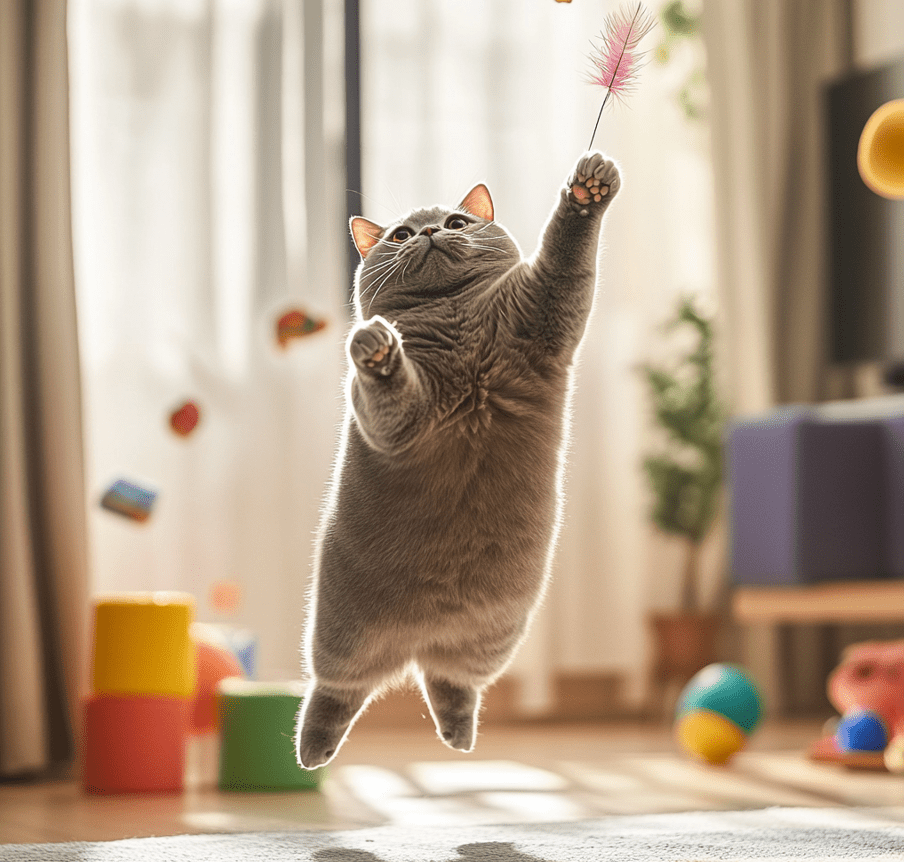
Fun Exercise Ideas
Interactive Toys: Use feather wands, laser pointers, or balls to encourage chasing and pouncing.
Puzzle Feeders: These slow eating and stimulate mental engagement, reducing boredom-related overeating.
Cat Trees: Provide climbing opportunities to promote activity.
Scheduled Playtime: Dedicate 10–15 minutes twice daily to active play.
Aim for activities that suit your cat’s personality, gradually increasing intensity to avoid stress.
Recognizing Signs of Overfeeding
Early detection of weight gain can prevent obesity. Watch for these signs:
Visible Weight Gain: A rounded abdomen or loss of waistline.
Lethargy: Reduced interest in play or movement.
Difficulty Grooming: Trouble reaching certain areas due to excess weight.
Breathing Issues: Panting or labored breathing during mild activity.
If you notice these, consult your veterinarian to adjust feeding and create a weight management plan.
Sample Meal Plans for British Shorthairs
To prevent overfeeding your British Shorthair, consider these sample meal plans tailored to different life stages. Always consult your vet before making dietary changes.
Kitten (6 months, 4 lbs)
Daily Calories: ~400 kcal
Meal Plan:
Morning: 1 oz wet food (100 kcal)
Midday: 1/8 cup dry kitten food (100 kcal)
Evening: 1 oz wet food (100 kcal)
Night: 1/8 cup dry kitten food (100 kcal)
Adult (4 years, 10 lbs, ideal weight)
Daily Calories: ~250 kcal
Meal Plan:
Morning: 2 oz wet food (100 kcal)
Evening: 2 oz wet food (100 kcal)
Treats: 1–2 low-calorie treats (10–20 kcal)
Senior (10 years, 9 lbs)
Daily Calories: ~180 kcal
Meal Plan:
Morning: 1.5 oz wet senior food (80 kcal)
Evening: 1.5 oz wet senior food (80 kcal)
Treats: 1 low-calorie treat (10 kcal)
These plans assume high-quality food; adjust based on your cat’s needs and food calorie content.
Veterinary Support for Weight Management
Regular veterinary care is essential to prevent overfeeding your British Shorthair. Vets can:
1.Assess your cat’s ideal weight and BCS.
2.Recommend specific foods or portion sizes.
3.Screen for obesity-related conditions like diabetes or arthritis.
4.Provide guidance on weight loss if needed (aim for 0.5–1% body weight loss per week).
Schedule check-ups at least annually for adults and twice yearly for seniors or overweight cats.
Conclusion
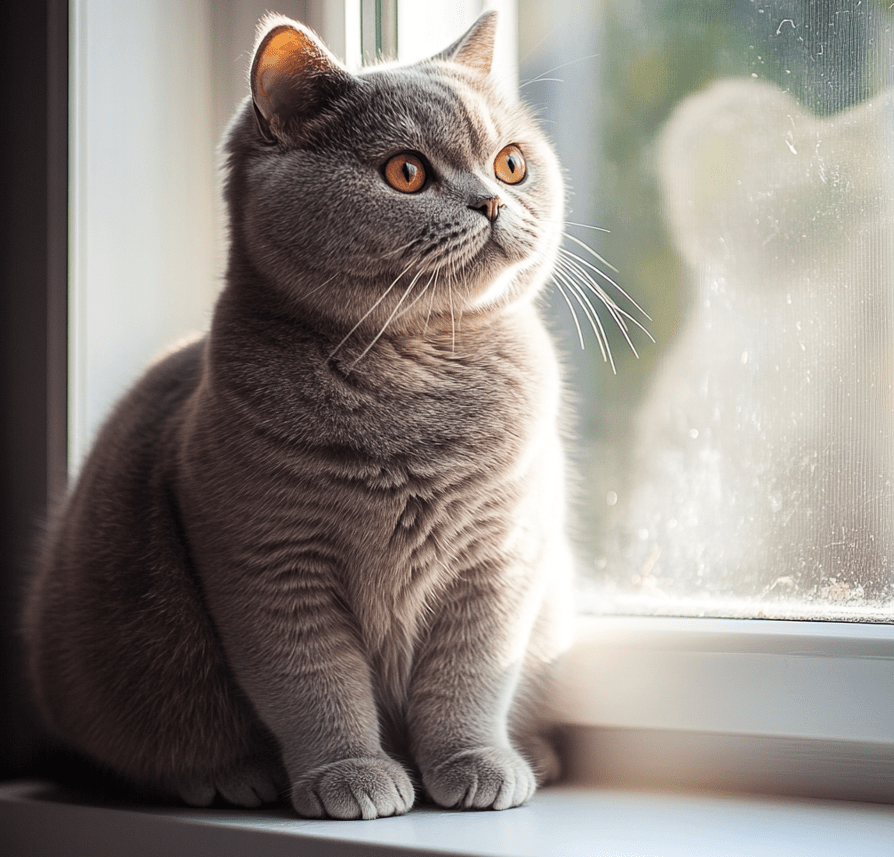
To prevent overfeeding your British Shorthair, prioritize precise portion control, high-quality nutrition, and regular exercise. By understanding their unique needs, monitoring their weight, and avoiding common feeding mistakes, you can keep your cat healthy and vibrant. Regular vet visits and a structured feeding routine will further support their well-being. With these strategies, you’ll not only prevent obesity but also strengthen the bond with your British Shorthair, ensuring they thrive for years to come.

